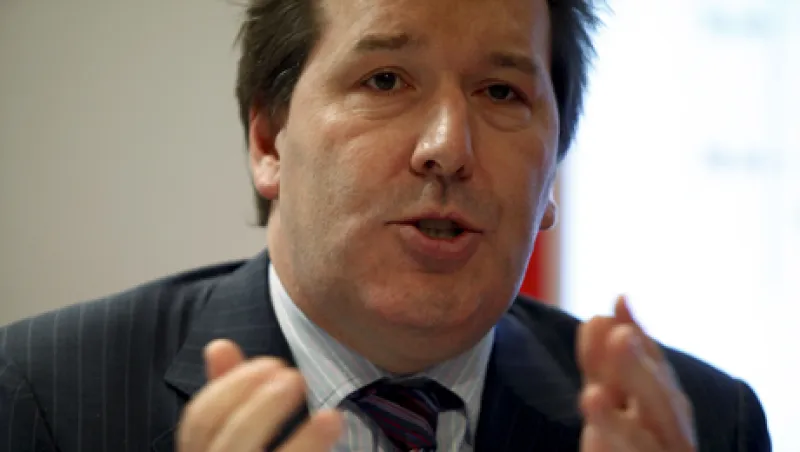
Stephen King, chief economist at HSBC Holdings Group Plc., speaks at a press conference in Istanbul, Turkey, on Tuesday, Oct. 6, 2009. HSBC Holdings Plc Chairman Stephen Green said the worst of the economic slump is over, a day after the chief executive officer said a second downturn was likely. Photographer: Kerem Uzel/Bloomberg *** Local Caption *** Stephen King
Kerem Uzel/Bloomberg

